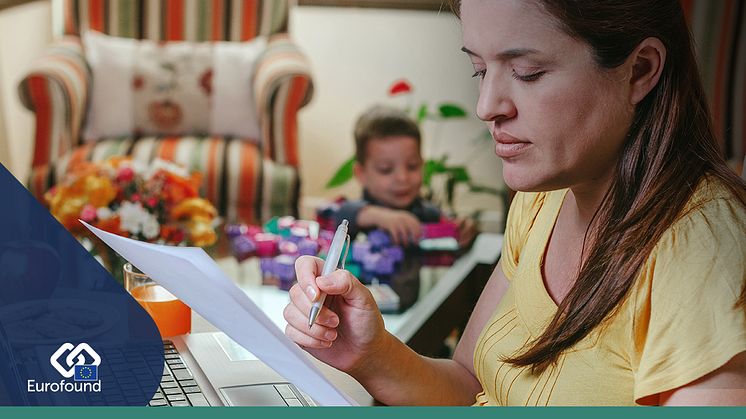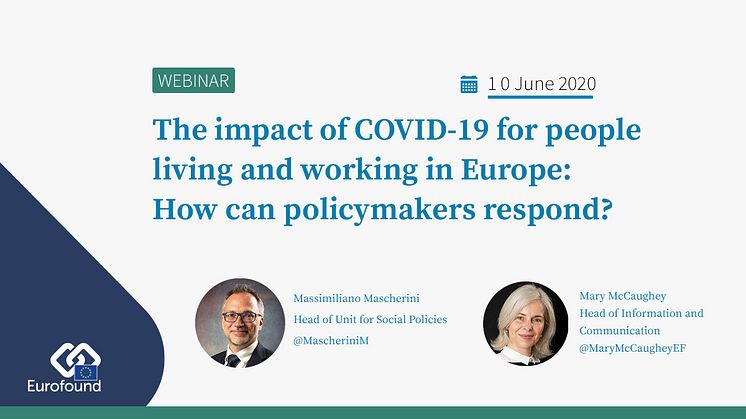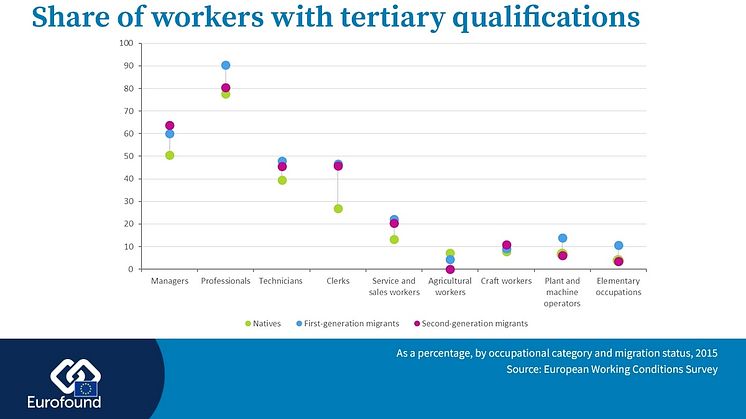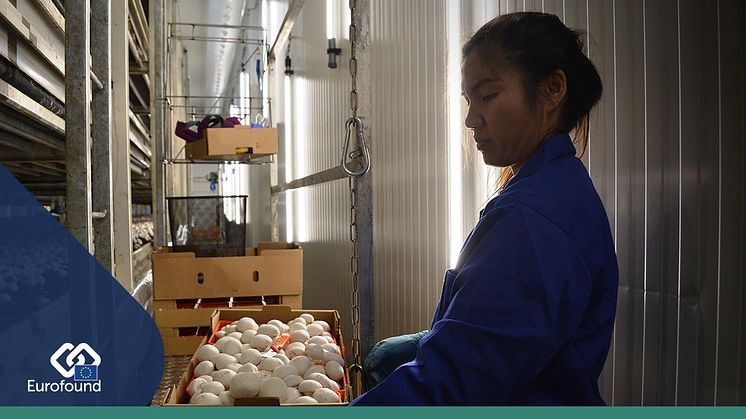COVID-19 fallout takes a higher toll on women, economically and domestically
While women appear to be more resilient than men to COVID-19 in terms of health outcomes, that is not the case when it comes to the economic and social fallout.

While women appear to be more resilient than men to COVID-19 in terms of health outcomes, that is not the case when it comes to the economic and social fallout.

Join us on 10 June for a live #AskTheExpert webinar and Q&A with @MascheriniM and @MaryMcCaugheyEF about #COVID19SurveyEU findings to discuss why particular groups of people are feeling the impact more than others and explore the policy options to help address these challenges.

Statutory minimum wages were raised in most EU countries for 2020 – in many even substantially, such as in Poland 17%, Slovakia 12%, and Czechia 11% - according to Eurofound’s ‘Minimum wages in 2020: Annual review’ published today.

On Europe Day 2020, the EU institutions want to pay tribute through numerous online activities to the many Europeans who, in a spirit of solidarity, are helping our Union get through the coronavirus crisis.

Eurofound research shows that the healthcare sector already has among the highest reported work intensity scores in Europe. COVID-19 risks not only exacerbating imbalance between sectors, but also creating a broader gender imbalance in work intensity on the labour market, as women are most represented in healthcare.

The onset of the COVID-19 pandemic has thrown societies around the world into flux and threatens to undo some of the positive progress that has taken place in recent years. However decreasing levels of societal tensions, such has been the case in Greece, may be a positive indicator of strengthening solidarity in society which is important in these difficult times.

Today, the European Commission presented its strategy for equality between women and men in Europe. The Gender Equality Strategy 2020-2025 sets out key actions for the next 5 years and commits to ensure that the Commission will include an equality perspective in all EU policy areas.
Gender equality is a critical component of economic growth and social rights in Europe. In this light, the EU ha

Men outnumber women in management positions by almost two to one in the EU, despite women constituting 48% of the labour market. On average, women made up just 36% of all managers in the EU in 2015, and despite some progress being made in recent years, men outnumber women in management positions in almost all sectors.

Bulgaria has experienced seismic shifts in typical household composition over the last decade; reporting the largest decrease in the share of multigenerational households in the EU, as well as increasing levels of cohabitation and people living alone. These societal trends occur at the same time as improving quality of life, higher labour market participation rates and population ageing.

New calculations from Eurofound show that the difference in female and male employment rates cost the EU, including the United Kingdom, over €360 billion in 2018.

The new von der Leyen Commission took office on 1 December 2019. Having adopted its first work programme on 29 January 2020, the Commission sets out its plans for a transition to a fair, climate-neutral and digital Europe. It outlines six top priorities. Eurofound’s work directly feeds into a number of these key areas aimed at creating a strong social Europe.

Estonia reports substantial increases to life satisfaction and happiness levels over the last fifteen years and optimism for the future is high with 69% feeling optimistic for their children’s or grandchildren’s future - above the EU average of 57%. Coupled with this, the perceived quality of public services has improved with childcare and public transport seeing the greatest increases.

A new analysis of EU-level data by Eurofound shows that one in three households in the EU is now single occupancy. Germany now has the largest proportion of the population living in single-person households, and large increases in the share of the population living alone have been reported in Lithuania and Bulgaria.

Lithuania has experienced significant improvements to the perceived quality of public services and overall living standards in recent years. However, despite overall increases to quality of living standards, income inequality has been increasing since the financial crisis, making Lithuania’s income distribution the second most unequal in the EU.

As one of their ‘100 days in office’ initiatives, the new European Commission intends to propose an initiative for an EU minimum wage. The aim is that by 2024 every worker in the EU should earn a fair and adequate wage, no matter where they live. And despite the Commission’s assurance that this would not alter national traditions of wage-setting, emotions are already running high

A common understanding of labour market segmentation is necessary to tackle poor quality jobs with lack of opportunities, affecting especially young people, women, immigrants and lower-educated individuals on the labour market. A new ambitious report explores why segmentation is problematic and identifies policy approaches which could be helpful in tackling this phenomenon.

As Romania celebrates its national day on Sunday, we mark the occasion by sharing our research and analysis to provide a snapshot of current living and working conditions.

First-generation migrants in the EU are significantly more likely to have attained tertiary qualifications than natives and second-generation migrants. However, first-generation migrant workers are also more likely to have primary education only, compared to the native population. This shows that educational attainment is more polarised.

First-generation migrant workers are 10 times more likely to report experiencing discrimination linked to race, ethnic background or colour than native workers; second-generation migrants are five times more likely. Overall, just 2% of workers reported discrimination on these grounds in the European Working Conditions Survey, but for those that are first-generation migrants this climbed to 10%.

Second-generation migrants with an EU background are more likely to be employed and in high-performing positions, such as managerial roles, than first-generation migrants – and even outperform natives in terms of employment rate.
